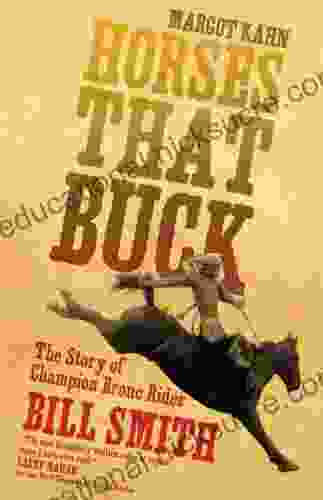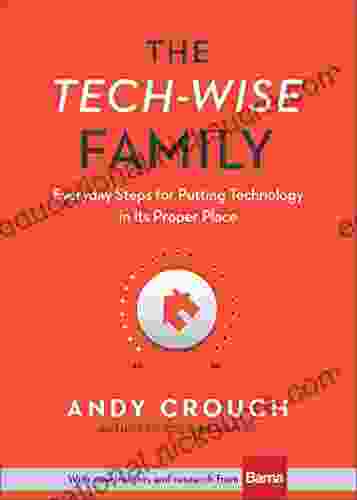Think Like a Baby: Understanding the Perspectives and Behaviors of Infants

4.8 out of 5
| Language | : | English |
| File size | : | 2629 KB |
| Text-to-Speech | : | Enabled |
| Screen Reader | : | Supported |
| Enhanced typesetting | : | Enabled |
| Word Wise | : | Enabled |
| Print length | : | 226 pages |
| Lending | : | Enabled |
Stepping into the world of parenthood is an extraordinary journey, filled with both awe and responsibility. As we navigate the formative years of our little explorers, it's essential to understand the unique perspectives and behaviors that shape their existence.
Cognitive Development: Exploring the World Through Senses and Movement
From the moment they enter the world, babies are eager to explore their surroundings. Their senses serve as gateways to knowledge, allowing them to taste, smell, hear, see, and touch the world around them. Each new experience contributes to their growing understanding of the environment.
In the early months, babies primarily rely on their reflexes to interact with their surroundings. However, as they grow, they develop voluntary motor skills, enabling them to reach for objects, roll over, and eventually crawl. These newfound abilities fuel their curiosity and expand their opportunities for exploration.
Emotional Development: Expressions and Communication
Babies are not just bundles of joy, they are also highly emotional beings. They experience a range of emotions, from happiness and excitement to sadness and frustration. While they may not be able to express their feelings verbally, their body language and actions provide valuable insights into their inner world.
Crying is a baby's primary means of communication. Whether it's hunger, discomfort, or emotional distress, crying is their way of signaling that they need attention. Other forms of non-verbal communication include facial expressions, gestures, and vocalizations.
The Significance of Early Experiences
The early experiences of infants have a profound impact on their development. From the moment of birth, their brains are highly malleable and ready to absorb vast amounts of information. Positive interactions, nurturing environments, and responsive caregiving can significantly enhance their cognitive, emotional, and social development.
Studies have shown that babies who experience secure attachments with their caregivers tend to have better emotional regulation, self-esteem, and social skills. They are also more likely to succeed academically and have healthier relationships in adulthood.
Enhancing Interactions and Fostering a Bond
Understanding the perspectives and behaviors of infants empowers parents and caregivers to enhance their interactions and foster a meaningful bond with their little ones.
- Engage in sensory play: Provide a variety of safe and engaging sensory experiences that stimulate their curiosity and encourage exploration.
- Talk and sing to your baby: Even though babies don't understand the words, the sound of your voice and the rhythm of language help them develop language skills.
- Respond to cues: Observe your baby's body language and vocalizations to understand their needs and respond accordingly.
- Provide a secure and loving environment: Ensure that your baby feels loved, safe, and supported. This will contribute to their emotional well-being and overall development.
- Get involved: Participate in your baby's daily routines, such as feeding, diaper changes, and baths. These experiences strengthen the bond and provide opportunities for learning and interaction.
Embarking on the journey of parenthood requires a deep understanding of the perspectives and behaviors of infants. By delving into their cognitive and emotional development, we can better appreciate the wonders of babyhood and provide the nurturing environment they need to blossom into healthy, happy, and thriving individuals.
Remember, each baby is unique, and their development may progress at varying paces. Patience, love, and the willingness to adapt to your baby's individual needs are the keys to creating a fulfilling and rewarding bond that will last a lifetime.
4.8 out of 5
| Language | : | English |
| File size | : | 2629 KB |
| Text-to-Speech | : | Enabled |
| Screen Reader | : | Supported |
| Enhanced typesetting | : | Enabled |
| Word Wise | : | Enabled |
| Print length | : | 226 pages |
| Lending | : | Enabled |
Do you want to contribute by writing guest posts on this blog?
Please contact us and send us a resume of previous articles that you have written.
 Fiction
Fiction Non Fiction
Non Fiction Romance
Romance Mystery
Mystery Thriller
Thriller SciFi
SciFi Fantasy
Fantasy Horror
Horror Biography
Biography Selfhelp
Selfhelp Business
Business History
History Classics
Classics Poetry
Poetry Childrens
Childrens Young Adult
Young Adult Educational
Educational Cooking
Cooking Travel
Travel Lifestyle
Lifestyle Spirituality
Spirituality Health
Health Fitness
Fitness Technology
Technology Science
Science Arts
Arts Crafts
Crafts DIY
DIY Gardening
Gardening Petcare
Petcare Paul Seabright
Paul Seabright W Michael Kelley
W Michael Kelley Nancy Frey
Nancy Frey Charles Darwin
Charles Darwin Catherine Gildiner
Catherine Gildiner Thomas F Hornbein
Thomas F Hornbein Michele Amitrani
Michele Amitrani Rory Stewart
Rory Stewart Debbie Felkins Tamez
Debbie Felkins Tamez Luca Brambilla
Luca Brambilla Rainer Martens
Rainer Martens Dawne Archer
Dawne Archer Vivien Newman
Vivien Newman Jamie Christian Desplaces
Jamie Christian Desplaces Christine Pearson Casanave
Christine Pearson Casanave Carla Hannaford
Carla Hannaford David Hawkins
David Hawkins Dan Orr
Dan Orr L Kathleen Mahan
L Kathleen Mahan Tony Ray
Tony Ray Ricky Roberts Iii
Ricky Roberts Iii Carolyn Coker Ross
Carolyn Coker Ross Sara T Gibbs
Sara T Gibbs Dawn Isaac
Dawn Isaac Shonda Rhimes
Shonda Rhimes Chris Dowhan
Chris Dowhan Bruce H Lipton
Bruce H Lipton T H Lain
T H Lain Jared Benson
Jared Benson Sian Beilock
Sian Beilock Arthur Kleinman
Arthur Kleinman Delphi Classics
Delphi Classics Charles Cooper
Charles Cooper Bruno David
Bruno David Guns Ammo
Guns Ammo Atul K Mehra
Atul K Mehra Nina Varela
Nina Varela Dr Sarah Mitchell
Dr Sarah Mitchell Nicholas J Higham
Nicholas J Higham Ruth Bell Graham
Ruth Bell Graham Gladstone Califf
Gladstone Califf Daniel Mark Brown
Daniel Mark Brown Sarah Edmondson
Sarah Edmondson Jenny Randles
Jenny Randles Maggie Ryan
Maggie Ryan Andy Crouch
Andy Crouch William E Hearn
William E Hearn Lucy Atkins
Lucy Atkins Lawrence Dawson
Lawrence Dawson Gila Leiter
Gila Leiter Sadhguru
Sadhguru Akil Palanisamy
Akil Palanisamy Mikael Krief
Mikael Krief Bill Dance
Bill Dance Madeleine Roux
Madeleine Roux Edgar H Schein
Edgar H Schein Zita Grant
Zita Grant Andrew Lawler
Andrew Lawler Andrew Robinson
Andrew Robinson Martin Woodward
Martin Woodward Yasuharu Okuda
Yasuharu Okuda Claire Phillips
Claire Phillips Erwin Schrodinger
Erwin Schrodinger John Eberhart
John Eberhart Tom Chesshyre
Tom Chesshyre H A Lorentz
H A Lorentz Peter Compton
Peter Compton John Daido Loori
John Daido Loori Nancy Wainer Cohen
Nancy Wainer Cohen Erin Macpherson
Erin Macpherson Stephen James
Stephen James Tim Huffman
Tim Huffman Andy Ankowski
Andy Ankowski Alexander Bennett
Alexander Bennett Jen Benson
Jen Benson Sarah Digregorio
Sarah Digregorio James Berry
James Berry Pawel Guziejko
Pawel Guziejko Stanley L Jaki
Stanley L Jaki Richard G Klein
Richard G Klein Natalie Babbitt
Natalie Babbitt Xavier P Hunter
Xavier P Hunter Andrew Hartman
Andrew Hartman George W Hart
George W Hart Edward C Klatt
Edward C Klatt Richard Bullivant
Richard Bullivant Jim Burnett
Jim Burnett Betty Smith
Betty Smith Bill Pennington
Bill Pennington David Sowell
David Sowell Jerry M Gutlon
Jerry M Gutlon Diane Tober
Diane Tober Steve Lage
Steve Lage Kevin Anderson
Kevin Anderson Rita Jablonski
Rita Jablonski Jason R Rich
Jason R Rich J P Mcevoy
J P Mcevoy Eli Maor
Eli Maor Michael J Thompson
Michael J Thompson Stephon Alexander
Stephon Alexander Mark Lester
Mark Lester J D Lenzen
J D Lenzen Robert N Wiedenmann
Robert N Wiedenmann Donn F Draeger
Donn F Draeger K L Walther
K L Walther Reid Sheftall M D
Reid Sheftall M D Rachel Lynn Solomon
Rachel Lynn Solomon The Car Crash Detective
The Car Crash Detective Stephen Prata
Stephen Prata Marsha Walker
Marsha Walker Kuldeep Singh
Kuldeep Singh Donna Tartt
Donna Tartt Daniel D Fox
Daniel D Fox Howard Thurman
Howard Thurman Leslie Klenke
Leslie Klenke John Helyar
John Helyar Patrick Felicia
Patrick Felicia Antipodean Writer
Antipodean Writer Aaron Edkins
Aaron Edkins Cathy Kelly
Cathy Kelly Dora Kurimay
Dora Kurimay Michael J Mauboussin
Michael J Mauboussin Gordon Webster
Gordon Webster Shannon Van Den Berg
Shannon Van Den Berg James D Watson
James D Watson Daniel Tammet
Daniel Tammet Ben Foss
Ben Foss Andrew Phillip Smith
Andrew Phillip Smith Teresa M Twomey
Teresa M Twomey Dennis J Stanford
Dennis J Stanford Jennie Lynn Gillham
Jennie Lynn Gillham Gabriel Weinberg
Gabriel Weinberg Christopher Dunn
Christopher Dunn Marianne Ryan
Marianne Ryan Seabury Quinn
Seabury Quinn Jaimal Yogis
Jaimal Yogis Claiborne Young
Claiborne Young Jennifer M Rosner
Jennifer M Rosner Kevin Thomas
Kevin Thomas Nicholas Harvey
Nicholas Harvey Gary Todd
Gary Todd Andrew Jamieson
Andrew Jamieson George Washington Cable
George Washington Cable Heidi Dais
Heidi Dais Timothy Gordon
Timothy Gordon Andrew Shaw
Andrew Shaw S G Taylor
S G Taylor Slavka Bodic
Slavka Bodic Miles Smeeton
Miles Smeeton Ruth Haley Barton
Ruth Haley Barton Ernest Becker
Ernest Becker Luna Fox
Luna Fox Becky Albertalli
Becky Albertalli Andrew Hudson
Andrew Hudson Rami Ungar
Rami Ungar Andrew M Greeley
Andrew M Greeley John Sefton
John Sefton Rhonda V Magee
Rhonda V Magee Dr John Hockey
Dr John Hockey Dan Werb
Dan Werb David A French
David A French William Ma
William Ma Chaim Potok
Chaim Potok Anthony Bishop Lmft
Anthony Bishop Lmft Stacey Lee
Stacey Lee Judith A Cohen
Judith A Cohen Melanie Burnell
Melanie Burnell Monica Clyde
Monica Clyde Carolyn Savage
Carolyn Savage John Mcphee
John Mcphee Thomas Clarkson
Thomas Clarkson Chaz Scoggins
Chaz Scoggins Suzanne Van Atten
Suzanne Van Atten Andrew Hodges
Andrew Hodges Diane R Gehart
Diane R Gehart Gordon Churchill
Gordon Churchill Beverly Asante Puschmann
Beverly Asante Puschmann Ehsan Masood
Ehsan Masood Jack David Eller
Jack David Eller Mark Hyman
Mark Hyman Laurie David
Laurie David Samuel Hideo Yamashita
Samuel Hideo Yamashita Andrew Warnes
Andrew Warnes Joey Rive
Joey Rive Wendy Bryden
Wendy Bryden Sarah Castille
Sarah Castille Annette K Larsen
Annette K Larsen Clare Keyes
Clare Keyes Antonio Pigafetta
Antonio Pigafetta Aristeidis Bampakos
Aristeidis Bampakos Helene Henderson
Helene Henderson Jamie Thornton
Jamie Thornton Stephen Rea
Stephen Rea Jerusha Clark
Jerusha Clark J K Rowling
J K Rowling Sally Cook
Sally Cook Andrew Thompson
Andrew Thompson Dustin Howe
Dustin Howe Melody Groves
Melody Groves Peggy Orenstein
Peggy Orenstein Jonathan Scott
Jonathan Scott Andrew Zerling
Andrew Zerling Kirk Goldsberry
Kirk Goldsberry Mark Mcclusky
Mark Mcclusky Philip Reeve
Philip Reeve Frances A Yates
Frances A Yates Christopher Vaughan
Christopher Vaughan Edmund Nequatewa
Edmund Nequatewa Brian L Silver
Brian L Silver Joya Goffney
Joya Goffney Molly E Lee
Molly E Lee Jeffro Johnson
Jeffro Johnson Ross Bernstein
Ross Bernstein Andrew Nahum
Andrew Nahum Bronwen Skye
Bronwen Skye Michio Kaku
Michio Kaku Jessica Speer
Jessica Speer Andrew Heywood
Andrew Heywood Jerry Z Muller
Jerry Z Muller Damon Wiseley
Damon Wiseley Emily Kerr
Emily Kerr Joseph Bronson
Joseph Bronson Master Wong
Master Wong Henry Fielding
Henry Fielding Cary Hanson
Cary Hanson Hope Jahren
Hope Jahren Mike Wells
Mike Wells C Todd Lombardo
C Todd Lombardo Morten Lund
Morten Lund W Somerset Maugham
W Somerset Maugham Sean B Carroll
Sean B Carroll Nick Estes
Nick Estes Rolf Potts
Rolf Potts Chelsea Johnson
Chelsea Johnson Jill Squyres Groubert Phd
Jill Squyres Groubert Phd Ira J Chasnoff
Ira J Chasnoff Kent Nerburn
Kent Nerburn Mallory Striesfeld Ms Lpc
Mallory Striesfeld Ms Lpc K A Linde
K A Linde Jim Hardy
Jim Hardy Piero Ferrucci
Piero Ferrucci Vibrant Publishers
Vibrant Publishers Sam Fels
Sam Fels Elijah N Daniel
Elijah N Daniel V S Ramachandran
V S Ramachandran Larry Jacobson
Larry Jacobson Julie Lythcott Haims
Julie Lythcott Haims Jay Arthur
Jay Arthur N S Wikarski
N S Wikarski Cassandra Erkens
Cassandra Erkens John Macgregor
John Macgregor Quick Guide
Quick Guide Winifred Gallagher
Winifred Gallagher Jessie Cal
Jessie Cal M J Abadie
M J Abadie Ruta Sepetys
Ruta Sepetys James P Sethna
James P Sethna Rolf Dobelli
Rolf Dobelli Tom Rosenbauer
Tom Rosenbauer Shannon Brown
Shannon Brown Paul Davies
Paul Davies Tim Clarkson
Tim Clarkson Claire Ahn
Claire Ahn Charlie Jones
Charlie Jones Helene St James
Helene St James Garth Nix
Garth Nix P Anastasia
P Anastasia Chris Rodell
Chris Rodell Janis Abrahms Spring
Janis Abrahms Spring Palle Yourgrau
Palle Yourgrau Carla Killough Mcclafferty
Carla Killough Mcclafferty Nelson L Schuman
Nelson L Schuman Glenn Berkenkamp
Glenn Berkenkamp Andrew Hempstead
Andrew Hempstead Jim Flynn
Jim Flynn Jason William
Jason William Margot Kahn
Margot Kahn Emilie Bailey
Emilie Bailey Nadia Shammas
Nadia Shammas Erika V Shearin Karres
Erika V Shearin Karres Sharon A Hansen
Sharon A Hansen Richard Twiss
Richard Twiss Marissa Meyer
Marissa Meyer Lisa Roberts
Lisa Roberts Omar D Lewis Sr
Omar D Lewis Sr Peter D Jeans
Peter D Jeans Marian Stamp Dawkins
Marian Stamp Dawkins Elizabeth Walter
Elizabeth Walter Loris Chen
Loris Chen Sam Maggs
Sam Maggs Lauren Conrad
Lauren Conrad Teresa Palmer
Teresa Palmer Mawi Asgedom
Mawi Asgedom Angela Berkfield
Angela Berkfield Behrouz Moemeni
Behrouz Moemeni Carl Petersen
Carl Petersen John H Carroll
John H Carroll Benedict Goleman
Benedict Goleman Sally Bjornsen
Sally Bjornsen Fiona Higgins
Fiona Higgins Jordan Ellenberg
Jordan Ellenberg Lisa Silverman
Lisa Silverman Eric H Cline
Eric H Cline Tiffany Harelik
Tiffany Harelik David Jefferson
David Jefferson Briana Wiles
Briana Wiles Christine Moore
Christine Moore Bob Brier
Bob Brier Slow Sprint
Slow Sprint Michael F Roizen
Michael F Roizen Connie Goldsmith
Connie Goldsmith Brian Grossenbacher
Brian Grossenbacher Christian Heath
Christian Heath Peter Kaminsky
Peter Kaminsky Seth J Gillihan Phd
Seth J Gillihan Phd Andrew X Pham
Andrew X Pham Rachel Pepper
Rachel Pepper J Richard Hackman
J Richard Hackman Fred Rogers
Fred Rogers Andrew J Wakefield
Andrew J Wakefield Hp Newquist
Hp Newquist Sean Bloomfield
Sean Bloomfield Sharae Moore
Sharae Moore Kirk W Johnson
Kirk W Johnson Ron Hackett
Ron Hackett Helen O Neil
Helen O Neil Xan Barksdale
Xan Barksdale Guy Windsor
Guy Windsor Rosicrucian Order Amorc
Rosicrucian Order Amorc Michael Polanyi
Michael Polanyi Stephen Cole
Stephen Cole Vanessa A P
Vanessa A P Tom Holland
Tom Holland Andrew Reeves
Andrew Reeves Rob Eastaway
Rob Eastaway Dave Chambers
Dave Chambers Andy Burnham
Andy Burnham Samara Caughey
Samara Caughey Jennifer Lw Fink Rn Bsn
Jennifer Lw Fink Rn Bsn John R Anderson
John R Anderson Richelle Mead
Richelle Mead Tom Bertrand
Tom Bertrand Ashley Schmitt
Ashley Schmitt Sebastian Deterding
Sebastian Deterding Carl Hart
Carl Hart Des Hewitt
Des Hewitt Educational Brain Games
Educational Brain Games Linda Goldberg
Linda Goldberg Tanya Crossman
Tanya Crossman Andrius Jac
Andrius Jac Clinton Anderson
Clinton Anderson Sheryl Feinstein
Sheryl Feinstein Jay Sokolovsky
Jay Sokolovsky Rhianna Pratchett
Rhianna Pratchett Andrew Peterson
Andrew Peterson Bridgit Danner Lac
Bridgit Danner Lac Julia Cameron
Julia Cameron Fatime Losonci
Fatime Losonci Laird Hamilton
Laird Hamilton Jennie Erin Smith
Jennie Erin Smith Sarah Pinborough
Sarah Pinborough William J Broad
William J Broad Timothy Ferris
Timothy Ferris Michael Barela
Michael Barela Andrew H Knoll
Andrew H Knoll Jonathan Bennett
Jonathan Bennett Kevin Shea
Kevin Shea Melisenda Edwards
Melisenda Edwards Rosalind Miles
Rosalind Miles Shannon Jensen
Shannon Jensen Hugh P Mckenna
Hugh P Mckenna Kathrine Switzer
Kathrine Switzer Touko Amekawa
Touko Amekawa Carolyn S Schroeder
Carolyn S Schroeder Christine Carter
Christine Carter Joy Vines
Joy Vines Nigel Calder
Nigel Calder Texes Exam Secrets Test Prep Team
Texes Exam Secrets Test Prep Team Elizabeth Acevedo
Elizabeth Acevedo M L Ray
M L Ray Andrew Stellman
Andrew Stellman Mark Vella
Mark Vella Kathleen Huggins
Kathleen Huggins Michelle Madow
Michelle Madow Elianor M A
Elianor M A Stan Tekiela
Stan Tekiela Tom Doak
Tom Doak Rick Scoppe
Rick Scoppe Brock Lesnar
Brock Lesnar Justine Bateman
Justine Bateman Andrew Moore
Andrew Moore Brianne Donaldson
Brianne Donaldson Kari Kampakis
Kari Kampakis Bryan Sykes
Bryan Sykes Stephanie V W Lucianovic
Stephanie V W Lucianovic Stephan Lee
Stephan Lee Ronald T Kneusel
Ronald T Kneusel Rudy Rucker
Rudy Rucker Dan Anderson
Dan Anderson Kris Holloway
Kris Holloway Carson Mccullers
Carson Mccullers Lynn Painter
Lynn Painter Shari Mezrah
Shari Mezrah Justin Fox Burks
Justin Fox Burks Kay Pranis
Kay Pranis Roger Highfield
Roger Highfield Simson L Garfinkel
Simson L Garfinkel Ed Rosenthal
Ed Rosenthal Andrew Lang
Andrew Lang Jon Paschetto
Jon Paschetto Damon B Akins
Damon B Akins Geraldine Woods
Geraldine Woods Sabrina Chevannes
Sabrina Chevannes Caroline Finnerty
Caroline Finnerty John Lofty Wiseman
John Lofty Wiseman Madeleine L Engle
Madeleine L Engle E K Johnston
E K Johnston Gina M Biegel
Gina M Biegel Eddy Starr Ancinas
Eddy Starr Ancinas Ruth E Van Reken
Ruth E Van Reken Christopher O Shaughnessy
Christopher O Shaughnessy Mona Liza Santos
Mona Liza Santos Sol Adoni
Sol Adoni Liz Prince
Liz Prince Robert Kurson
Robert Kurson Robert M Schoch
Robert M Schoch Sue Fleming
Sue Fleming Robert Holdstock
Robert Holdstock Justine Bold
Justine Bold Mark Cannizzaro
Mark Cannizzaro Gene Stone
Gene Stone Jon Gertner
Jon Gertner Ilene And Gary Modica
Ilene And Gary Modica Vincent Norman
Vincent Norman Fourth Edition Kindle Edition
Fourth Edition Kindle Edition Prosanta Chakrabarty
Prosanta Chakrabarty Chris Mcmullen
Chris Mcmullen Mark Needham
Mark Needham Sendhil Mullainathan
Sendhil Mullainathan Gordon Wright
Gordon Wright Marcos Romero
Marcos Romero Neil Harman
Neil Harman James R Hansen
James R Hansen Davida Hartman
Davida Hartman Monty Roberts
Monty Roberts Mary Sheedy Kurcinka
Mary Sheedy Kurcinka Harvey Motulsky
Harvey Motulsky Susana Wald
Susana Wald Eva Longoria
Eva Longoria Kinley Macgregor
Kinley Macgregor Jakob Schwichtenberg
Jakob Schwichtenberg Emily Wibberley
Emily Wibberley Linda Whitenton
Linda Whitenton Ginger Scott
Ginger Scott Daniel W Cunningham
Daniel W Cunningham Stephen Howe
Stephen Howe Zhongxian Wu
Zhongxian Wu Mirabai Starr
Mirabai Starr Gordon W Green
Gordon W Green Carl Allchin
Carl Allchin Patrick Barrett
Patrick Barrett Marcus Tomlinson
Marcus Tomlinson Jonathan C Slaght
Jonathan C Slaght Anne Marie Scully
Anne Marie Scully Mary H K Choi
Mary H K Choi Rosita Boland
Rosita Boland Judy Ford
Judy Ford Laird Scranton
Laird Scranton Christopher Hodapp
Christopher Hodapp Adam Minter
Adam Minter Walter Martin
Walter Martin Lauren James
Lauren James Sadie Robertson
Sadie Robertson William Gurstelle
William Gurstelle Bryan Mellonie
Bryan Mellonie Uma Dinsmore Tuli
Uma Dinsmore Tuli Rupert Sheldrake
Rupert Sheldrake Leigh Bernacchi
Leigh Bernacchi Marie Sherlock
Marie Sherlock Nicholas D Souza
Nicholas D Souza Lauren Kate
Lauren Kate Tami Fox
Tami Fox Dan Allan
Dan Allan Pseudo Nym
Pseudo Nym Michael Epperson
Michael Epperson Tina H Boogren
Tina H Boogren Howling Moon Books
Howling Moon Books David Stipp
David Stipp Robert Parris Moses
Robert Parris Moses Mark Vanhoenacker
Mark Vanhoenacker Mike Cohn
Mike Cohn Portia Macintosh
Portia Macintosh Michaela Deprince
Michaela Deprince Maggie Stiefvater
Maggie Stiefvater Lisa Bevere
Lisa Bevere David Carrasco
David Carrasco William Mark Huey
William Mark Huey John Atherton
John Atherton Lisa Cron
Lisa Cron Nick Jaffe
Nick Jaffe George H Odell
George H Odell Rachel E Spector
Rachel E Spector
Light bulbAdvertise smarter! Our strategic ad space ensures maximum exposure. Reserve your spot today!
 Neal WardFollow ·13k
Neal WardFollow ·13k Carlos DrummondFollow ·8.3k
Carlos DrummondFollow ·8.3k Harvey BellFollow ·6.7k
Harvey BellFollow ·6.7k Eugene PowellFollow ·8.8k
Eugene PowellFollow ·8.8k Trevor BellFollow ·14.7k
Trevor BellFollow ·14.7k Colby CoxFollow ·9.5k
Colby CoxFollow ·9.5k Jerry HayesFollow ·19.6k
Jerry HayesFollow ·19.6k Galen PowellFollow ·6.6k
Galen PowellFollow ·6.6k

 Craig Blair
Craig BlairThe Story of Champion Bronc Rider Bill Smith: A Legacy of...
In the annals of rodeo...

 H.G. Wells
H.G. WellsAmazing Real Life Stories In The News
The news is often...

 Jordan Blair
Jordan Blair35 Wellness Walks to Expand Awareness, Increase Vitality,...
In an era where technology...

 Edward Reed
Edward ReedCycling London to Paris: An Epic Adventure in the Making
Are you ready for the...

 Edgar Hayes
Edgar HayesEveryday Steps For Putting Technology In Its Proper Place
Are you constantly...

 Mitch Foster
Mitch FosterSat Math Mastery Advanced Algebra Geometry And Statistics
SAT Math Mastery Advanced Algebra Geometry...
4.8 out of 5
| Language | : | English |
| File size | : | 2629 KB |
| Text-to-Speech | : | Enabled |
| Screen Reader | : | Supported |
| Enhanced typesetting | : | Enabled |
| Word Wise | : | Enabled |
| Print length | : | 226 pages |
| Lending | : | Enabled |











